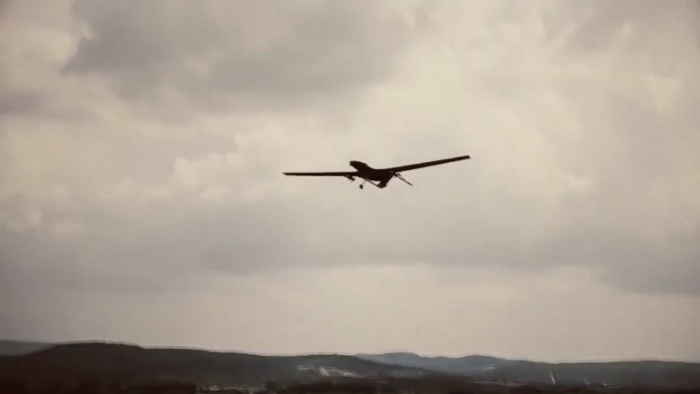Cevheri Güven
A move by the Canadian government to cancel military arms export licenses to Turkey has dealt a significant blow to the country’s defense industry, most notably in the field of unmanned aerial vehicles (UAVs).
Ottawa has concluded an investigation into the use by Turkey of Canadian-made military technology in conflicts in third countries such as the Azeri-Armenian clashes in Nagorno-Karabakh as well as in Syria and Libya and decided to cancel export licenses for military goods and technologies to Ankara. The move means a significant loss for Turkey’s growing drone industry. However, Ankara’s military imports from Canada are not limited to UAVs. The decision will have consequences on a broad range of items from aircraft engines to electronic warfare systems.
The most vital drone component
Turkey recently used its fleet of drones in Syria, Libya and Nagorno-Karabakh, playing an important role in changing the balance of these conflicts to Ankara’s favor. Manufactured by Baykar, a company owned by President Recep Tayyip Erdoğan’s son-in-law Selçuk Bayraktar, as well as by the state-owned TUSAŞ, the drones use electro-optical (EO) and infrared (IR) sensors developed by the Canadian Wescam company. The high-tech items are used by Baykar in TB2 drones and by TUSAŞ in ANKA drones.
Being a more expensive drone with advanced intelligence capabilities, TUSAŞ’s ANKA drone was not deployed in extraterritorial conflicts. Baykar’s drones, however, were widely used in every escalation in which Ankara was involved.
Wescam’s MX-15D optical systems, which allow electro-optical and infrared transfer of imagery as well as automatic target spotting, were used by both models and are considered to be the highest quality system that Ankara could acquire.
Baykar also uses Wescam’s systems in the newly developed Akıncı drone, a longer-range vehicle that is still in the testing phase. In the event that the sanction remains in effect for a long time, it could have adverse effects on the project.
Turkey has tasked another publicly owned defense company, ASELSAN, with developing homemade visualization systems. CATS, an electro-optical camera developed by ASELSAN, is heavier than Wescam’s products. It also has a lower resolution and poses disadvantages with respect to target designation.
Armed and unarmed UAVs are also a crucial export item for Turkey. Baykar has sold TB2s to Azerbaijan. While Canada said the sale violated guarantees given by Ankara, Baku has confirmed the purchase and the Azeri government has not hesitated to exhibit TB2s in military parades.
Baykar had also announced talks with Ukraine, Saudi Arabia and Pakistan for the sale of drones. Canada’s recent decision carries the risk of blocking them.
Four idle Bombardiers in the hangar
Ottawa’s decision also affects Turkey’s HAVA SOJ (Stand Off Jammer) project, aimed at locally developing electronic warfare capabilities, for which Ankara took delivery of four Bombardier Global 6000 type special mission aircraft last year.
Although Canada has delivered the planes, it halted its cooperation with Turkey after the Nagorno-Karabakh conflict in October 2020. The investigation into Turkey’s involvement brought restrictions that prevented cooperation in training and the further transfer of information. The aircraft, which the Turkish Air Force insisted on purchasing, have been sitting idly in hangars.
Helipads for battleships
MİLGEM, Turkey’s homemade battleship program, will also be impacted by the decision as Canada was the planned supplier of helipads for the corvettes and frigates to be manufactured as part of the project.
Engines for training aircraft
Ankara was also acquiring Canadian-made PT6 engines manufactured by Pratt & Whitney Canada for the training plane Hürkuş. The PT6 is widely used in civilian and military aircraft, and Canada’s decision means a halt to its supply to Turkey.

